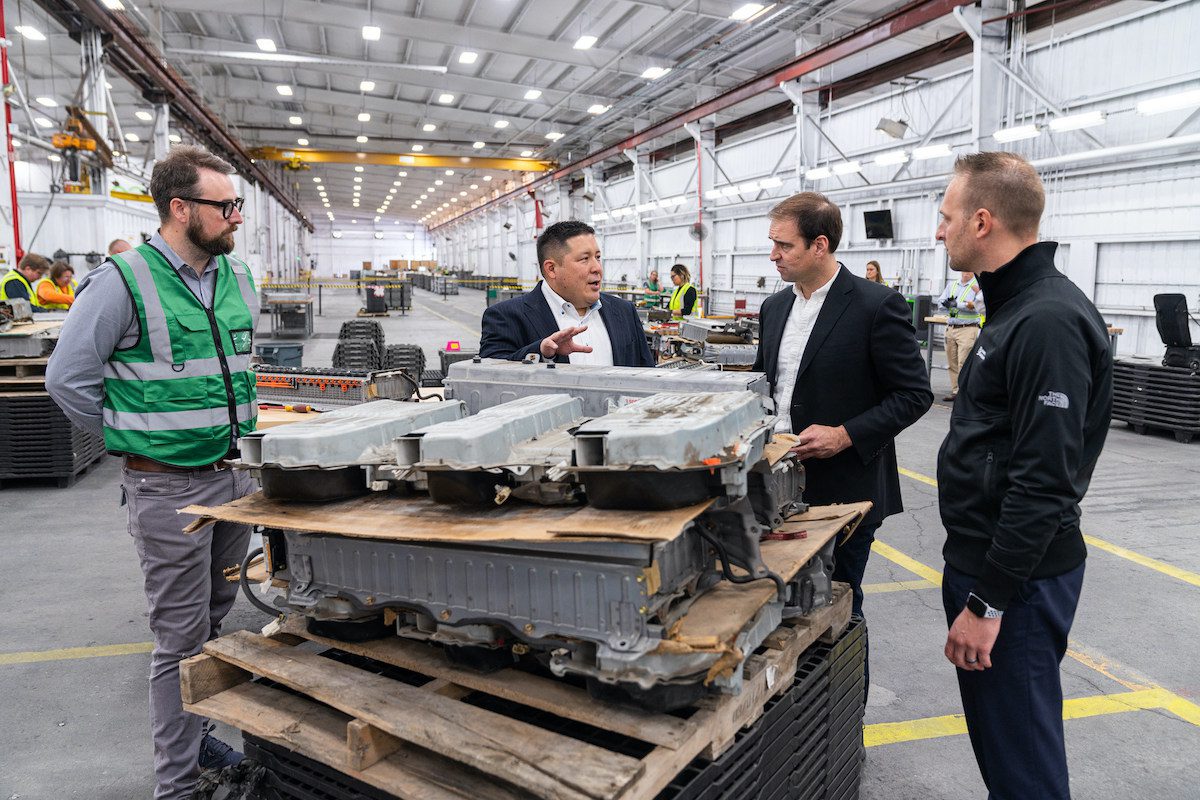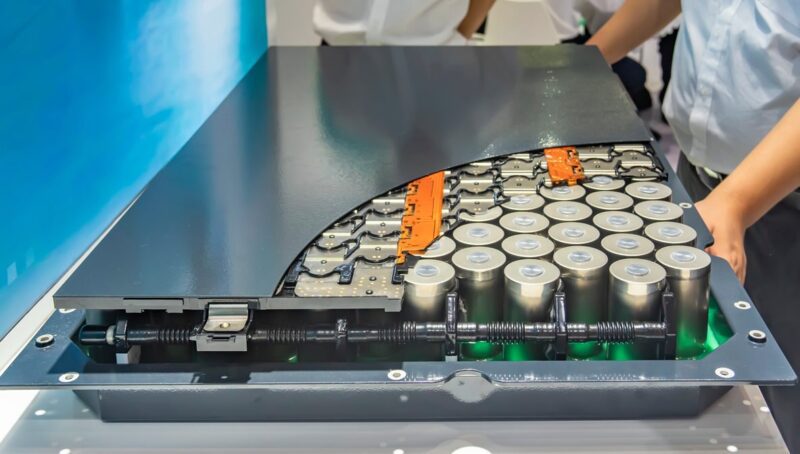Over the past few years there’s been plenty of misinformation about what happens to electric vehicle batteries at their end of life, including from fossil car propagandists painting dystopian scenes of millions EV batteries piling up around us.
For some reason their concern never seems to extend to the 50 odd tonnes of fossil fuel ripped out of the earth and burnt for every fossil car.
However, new research suggests that end-of-life EV batteries may be in hot demand with the used packs containing valuable critical minerals and recycling capacity forecast to far exceed EV battery feedstock.
According to a new report from ABI Research, based on current plans, by 2030 US based EV battery recycling plants will have almost four times the battery recycling capacity compared to available stock end-of-life EV batteries.
Charged EVs says companies, encouraged by generous government incentives, have been investing heavily in battery plants. According to the new research, companies are planning to build enough EV battery recycling capacity by 2030 to recycle 1.3 million EV battery packs per year, but only some 341,000 per year are expected to be available at that time.
“There are concerns about a lack of capacity for EV battery recycling, but the opposite is true,” says Dylan Khoo, Electric Vehicles Industry Analyst at ABI Research.
“Current plans for recycling plants see capacity greatly outstripping the supplies of waste batteries. This will lead to uneconomic utilization rates or, more likely, a delay or scaling down in recycling projects.”
This flips the anti-EV propaganda about end-of-life EV batteries on its head suggesting that used batteries will be highly sort after by battery recyclers.
Recyclers now recovering over 95% of EV battery minerals
Last year Redwood Materials, founded by Tesla cofounder and former chief technical officer J. B. Straubel, announced it is now achieving a recovery rate of 95% of the lithium, copper, nickel and cobalt in end-of-life EV batteries.
Termed “non-extractive mining” its believed the extraction of valuable materials like lithium and nickel from used batteries will be more cost effective than traditional mining, which will ultimately pave the way for a circular economy.

Batteries lasting much longer, reducing the need for recycling
Part of the reason there are now predictions that battery recycling capacity will significantly outstrip the supply of used batteries could be because batteries are lasting much longer than previously believed.
The world’s largest battery maker CATL recently announced a new EV battery with a 1.5 million km warranty, completely rewriting the narrative around battery longevity.
Previous analysis of recycling capacity was likely made on much lower battery lifespans, possibly made with assumptions based on average ICE vehicle lifespan which is only around 250,000.
A 1.5 million km battery will get 6 times the lifespan of conventional ICE vehicle meaning the need for recycling capacity is much lower than previously thought.
Critical mineral traditional mining involves highly complex and energy intensive processes. Non-extractive mining from used EV batteries by comparison is much easier with all the minerals already refined.
With likely high prices for end-of-life EV batteries and recycling companies keen to get their hands on limited supply, the transition to electric vehicles continues to bring us closer to a true circular economy.

Daniel Bleakley is a clean technology researcher and advocate with a background in engineering and business. He has a strong interest in electric vehicles, renewable energy, manufacturing and public policy.


